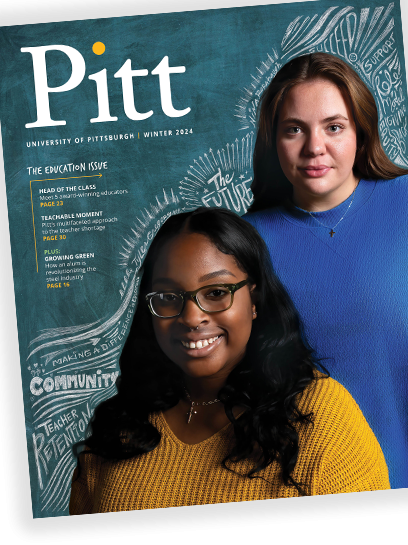

Itâs 2016, and Tadeu Carneiro is freshly retired and on his way to the beach when he gets the phone call from Boston Metal, a five-person company with some very big plans.
The firm, founded in 2013 in Massachusetts, is on a mission to develop âgreen steelâ technology to remove fossil fuels from an age-old steelmaking process and instead swap in renewable electricityâlots of it.
Carneiro, an industry veteran, is certainly familiar. A 1998 graduate of the Joseph M. Katz Graduate School of Business, heâs just wrapped a 30-year career with CBMMâa Brazil-based company that supplies alloys for use in pipelines and superconductorsâthe last 10 of which he served as CEO. He knows Boston Metal; they have the technology, a high-profile publication about it in Nature, and an ambitious plan.
What he doesnât know, until that call, is that Boston Metal wants Carneiro to be its first CEO.Â
Despite his retirement plans, the opportunity proves too important to ignore. The iron and steel industry accounts for approximately 8% of the worldâs CO2 emissionsâ2.9 billion tons annually. With its MIT-developed platform technology, molten oxide electrolysis (MOE), green steel has the potential to bring steel emissions close to zero.
âI worked my whole life very much associated with technology to make more efficient materials, especially steel,â Carneiro says. âYou just cannot say no to this.âÂ
The next six years at Boston Metal with Carneiro at the helm can be summed up in one word: growth. Between 2017 and 2023, the staff of five grew to more than 170 employees. Operations expanded to Brazil. What was once a lab-based technology sized up to âindustrial scale.â Then came the funding: nearly $350 million over just three yearsâ$262 million of which Boston Metal announced in September. The transformative development drastically raised the companyâs public profile, but also its capability, as Carneiro puts it, to ârevolutionize the steel industry.â
That string of victories hasnât come without challenges. The quest to scale up MOE technology was impacted by the pandemic. Breaking the chemical bonds in iron ore with electricity requires a âcellâ the size of a school bus, and a careful process that reaches temperatures of up to 1,600 degrees Celsius. âItâs not like developing software,â Carneiro says. âYou donât do this remotely.âÂ
Regardless, Carneiro says Boston Metal remains on pace to license the technology commercially by 2026. Itâs an achievement he partly attributes to his unique leadership philosophy, much of which he honed while being exposed to the âbusiness diversityâ of the program at Katz, where he remains involved today. âItâs about people,â Carneiro says. âYou have to bring in talent, and you have to make talent work together toward the same goal, the same vision. That's been my guiding star.âÂ
Itâs a guiding star that makes Carneiro uncommonly optimistic about Boston Metal, the rollout of green steel and the potential of a carbon-neutral future.
âWe are privileged, all of us,â he says, âto be living in the decade during which we will save the planet.â


